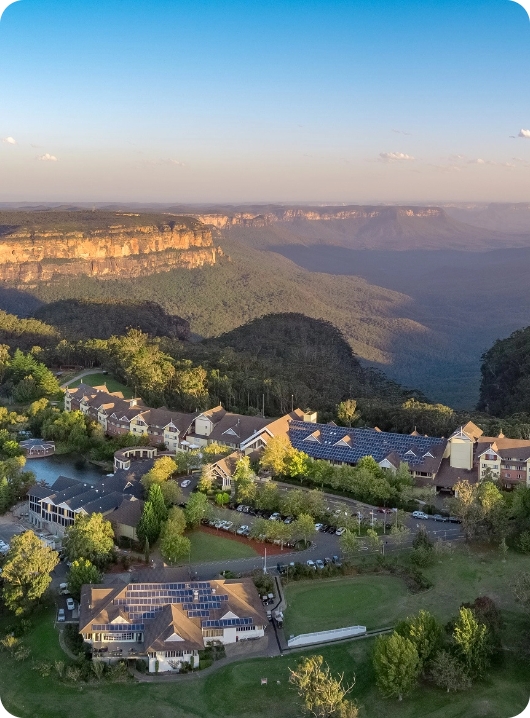Prudence Marzinotto
Why Relying on Traditional SEO Alone Won’t Get Hotels Found in Google’s AI Mode
Search is changing and fast. In June, Google began rolling out AI Mode across the U.S., with global expansion already underway. Soon, this will become the default search experience worldwide. That means no opt-in, no testing phase, just a straight shift in how billions of travellers discover information online.
For hotels, this matters more than ever. Visibility in search has always been the make-or-break factor in driving direct bookings. What used to work, ranking high in traditional organic results, no longer guarantees your hotel will appear in Google’s AI-powered answers.
If you’ve been banking on “page one” as your golden ticket, the new AI search experience just tore up the rules.
The Problem With “Just Ranking High”
In a large-scale analysis of 1,000 U.S. transactional queries, researchers compared Google’s traditional organic rankings with citations included in AI Mode. The results were eye-opening:
- 68% overlap: Only 68% of AI Mode answers contained at least one source from the top 20 organic results.
- 20% inclusion rate: Just 20% of all AI Mode citations came from top 20 rankings. In other words, 80% of the sources came from sites outside the top 20 search results.
- Top rank ≠ guaranteed spot: Even the #1 ranking page only showed up in AI Mode 27% of the time. Rank 2 dropped to 21%, and Rank 3 to 17%.
Think about that. For decades, SEO has been about climbing the ladder, getting your site to rank #1, #2, or #3. In AI Mode, that effort only gets you a one-in-four chance of being included.
Simply winning the organic race isn’t enough to guarantee your property makes it into AI-powered answers.
Why AI Mode Changes the Game: Query Fan-Out
So why is there such a disconnect? The answer lies in how Google’s AI Mode interprets search. Instead of returning a clean list of ranked results, it uses a process called query fan-out.
Here’s what happens:
- A traveller searches “best boutique hotels in Sydney near the harbour.”
- AI Mode breaks this down into multiple sub-queries:
- “What are the top boutique hotels in Sydney?”
- “Hotels with harbour views Sydney”
- “Traveller reviews boutique hotels Sydney”
- “Boutique hotels close to Sydney Opera House”
- “Sydney boutique hotels with dining options”
- It then pulls information from dozens of different sites, sometimes reviewing 50+ sites to build a synthesised answer.
This is why organic ranking doesn’t equal guaranteed inclusion. AI Mode doesn’t just look at one query. It deconstructs intent, gathers data from a broad range of sources, and then decides what to cite.
For hotels, this means you’re no longer competing for one keyword. You’re competing to show authority across entire topic clusters, all the related sub-questions travellers might have.
The Reality Hotels Need to Face
The data proves that breadth beats position.
- Out of 10,853 AI Mode citations, only 20% came from top 20 organic rankings.
- AI Mode cited an average of three sources per query—pulling from different angles, not just the top result. Even when overlap occurred (68% of queries), most AI Mode answers still pulled in sources beyond the top-ranking pages.
The old SEO playbook, pick a keyword, rank high, and drive traffic is now incomplete.
Hotels need to optimise differently: for visibility in AI Mode as much as for rankings.
What This Means for Hotels Competing Against OTAs
OTAs like Booking.com and Expedia have two advantages:
- Content breadth: They already cover a wide range of sub-queries, location, reviews, comparisons, dining, amenities, packages.
- Authority signals: They dominate traditional search rankings, making them natural candidates for AI Mode citations.
If hotels continue relying on “rank for my name + city” strategies, they’ll be drowned out in AI search.
What’s required now is Answer Engine Optimisation (AEO)—a content and visibility strategy designed specifically for AI-powered search.
Control vs. Complacency
Every hotelier knows that commissions eat into margins, and protecting direct revenue is non-negotiable. The good news? In the new AI search landscape, you’re not powerless, you can claim more control than ever before.
AI Mode doesn’t reward whoever spends the most on ads or has the flashiest website. It rewards breadth of knowledge and relevance. If your hotel is consistently answering the full range of questions travellers are asking from location and amenities to dining and local experiences, you’re no longer just “ranking,” you’re becoming a go-to authority.
In this way, AI Mode levels the playing field. It gives hotels an opportunity to shine through comprehensive topical coverage and thoughtful content, not just sheer marketing spend. The question isn’t whether you can compete, it’s whether you’re ready to step into that opportunity.
What Hotels Should Do Now
Here’s the playbook for AI Search Visibility:
1. Build Topic Clusters, Not Just Landing Pages
Stop writing single “boutique hotel in Sydney” pages. Build content hubs around every angle of traveller intent:
- Dining at boutique hotels
- Sydney harbour views
- Proximity to attractions
- Traveller stories and reviews
- Unique amenities (spa, rooftop bar, family-friendly)
2. Optimise for Sub-Queries
AI Mode is looking at the breadth of questions. That means your content needs to anticipate and answer related searches travellers may not type directly into Google but still care about.
3. Structured Data & Schema Markup
Don’t just optimise text, optimise signals. Schema markup increases the chance of being cited in AI Mode by making your content machine-readable.
4. Prioritise Visibility Beyond Rankings
Think less about “rank one” and more about being mentioned. AI Mode pulls multiple sources. Your goal is to appear in the mix, not dominate a single query.
5. Use the Right Tools: Helium & AI Source
At HyperHotels, we’ve built solutions designed for this exact shift:
- Helium – traditional SEO with a stronger foundation, weaving in GEO (Generative Engine Optimisation) principles so your hotel is prepared for both organic search and AI-powered experiences.
- AI Source – our dedicated Answer Engine Optimisation (AEO) tool, designed to increase your hotel’s chances of being cited in AI Mode responses by ensuring your content covers broad intent and sub-queries travellers actually care about.
Together, these tools go beyond rankings. They give your hotel the structural visibility needed in a world where AI-driven search is rewriting the rules.
A Shift From Keywords to Authority
The message is clear: Traditional SEO is no longer the only game.
Yes, rankings still matter. Higher-ranked sites increase chances of inclusion but the percentages prove they don’t guarantee it.
What matters more is building topic authority. That means showing Google and by extension, its AI system, that your hotel website has comprehensive, reliable, and relevant answers across multiple dimensions of traveller intent.
In practical terms? Stop chasing one keyword. Start building a content ecosystem that signals expertise across the full travel journey.
The Takeaway for Hotels
AI Mode is not a future threat, it’s here, rolling out globally. It’s already changing how travellers book.
If your strategy still relies on climbing traditional rankings only, you’re leaving your hotel exposed.
The hotels that will win in this new era are the ones that adapt fast, moving beyond SEO into Answer Engine Optimisation.
In Google’s AI Mode, visibility isn’t about ranking first. It’s about being present across the intent landscape that travellers are navigating.
The opportunity? Hotels that master this shift will finally have a fighting chance at reclaiming visibility and direct revenue.
If AI Mode is rewriting the rules of search, how long can you afford to play by the old ones?

Prudence Marzinotto

Transforming Fairmont Resort Blue Mountains – MGallery Collection
QUICK WINS IN THE
BLUE
MOUNTAINS.
+$237,561
Achieved in the first 90-days.

DANIELA TATONETTI
Sales & Marketing Manager
Holiday Inn West Perth